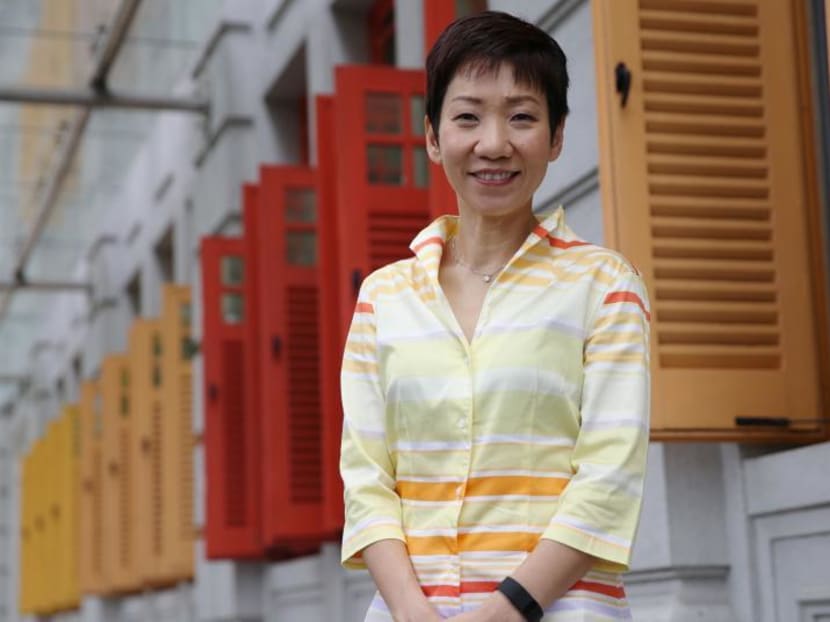More women needed in boardroom, gender diversity a ‘necessity’: Grace Fu
SINGAPORE – As the #MeToo and #TimesUp movements continue to gain momentum worldwide, Minister for Culture, Community and Youth Grace Fu has called for more women to be represented on company boards, pointing out that it “is a necessity, not a nice-to-have” in order to tackle women’s issues such as sexual harassment and unequal pay at the workplace.

MCCY Minister Grace Fu has called for more women to be represented on company boards in order to tackle women’s issues such as sexual harassment and unequal pay at the workplace. TODAY FILE PHOTO
SINGAPORE – As the #MeToo and #TimesUp movements continue to gain momentum worldwide, Minister for Culture, Community and Youth Grace Fu has called for more women to be represented on company boards, pointing out that it “is a necessity, not a nice-to-have” in order to tackle women’s issues such as sexual harassment and unequal pay at the workplace.
Ms Fu, who was speaking at the launch of a report on gender diversity on Singapore company boards at the SGX Auditorium on Friday (Jan 26), referred to the two global movements calling out men in power for their alleged sexual misconduct. She also noted that there have been reports of women being paid less than men, or denied promotions, in companies in the technology sector.
“Women are asking questions about what their companies, institutions and organisations are doing about this issue – what is the protocol to handle the complaint; what actions are to be taken against the perpetrators; how do you prevent this from recurring,” she said.
“In other words, ‘what are you doing in your organisation to ensure that women can do work, safe from superiors who abuse their power?’”
Ms Fu acknowledged that while not all companies face such issues, all ‘serious minded boards’ should enable such issues to be considered, and a culture that will stand up to scrutiny when faced with allegations.
She added: “This is but one reason why women voices on the Board and in leadership are critically needed for businesses these days… Board diversity, particularly gender diversity in this case, is a necessity, not a nice-to-have.”
In her speech, Ms Fu also urged companies to work towards the target of increasing female directors. She called for half the companies listed on the Singapore Exchange – especially those without any female director – to take the step of appointing one female director to their board.
The numbers are “far from optimal”, with women occupying over just 10 per cent of board seats despite making up nearly half the labour force, noted Ms Fu.
According to the report launched by the Human Capital Leadership Institute (HCLI) and BoardAgender, an initiative of the Singapore Council of Women’s Organisations, these numbers lag behind those of other countries. Female directors’ representation stood at 27.2 per cent in Germany, 27 per cent in the United Kingdom, 20 per cent in the United States, and 15 per cent in Hong Kong.
The report found that 54 per cent of companies surveyed were “meritocracy upholders”, and do not believe that women should be given positions just because of their gender.
But lead researcher Dr Don Chen of the HCLI said: “Meritocracy and gender diversity are not mutually exclusive. Boards need to strike a balance between looking for candidates who fit their archetype to a ‘T’ and the benefits of gender diversity where members bring a greater variety of skills and perspectives to the table.”
The report identified factors which impede the move to having more women on company boards. These include a higher male labour participation rate leading to more men in senior management positions, more entrenched boards with male directors having longer tenures as compared to other countries.
Boards also tend to have rigid expectations about what a suitable director should be like, said the report.
“These perceptions are largely formed and reinforced through the tendency of boards to select new directors that are similar to themselves in skill set and experience. This limits the board to nominate and select directors from an artificially small talent pool, often excluding females who do not fit the typical profile of an existing director,” said the report.
It also made recommendations to increase the representation of women on boards.
These include having a deliberate and targeted board renewal process, and having nominating committees with sufficient independence to choose directors with the right skills and talent mix.









